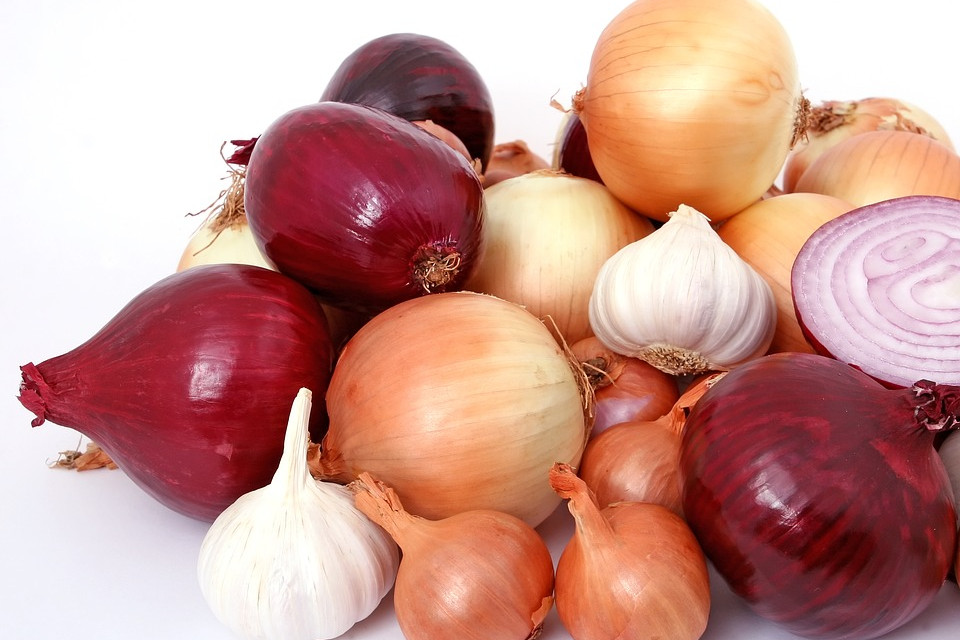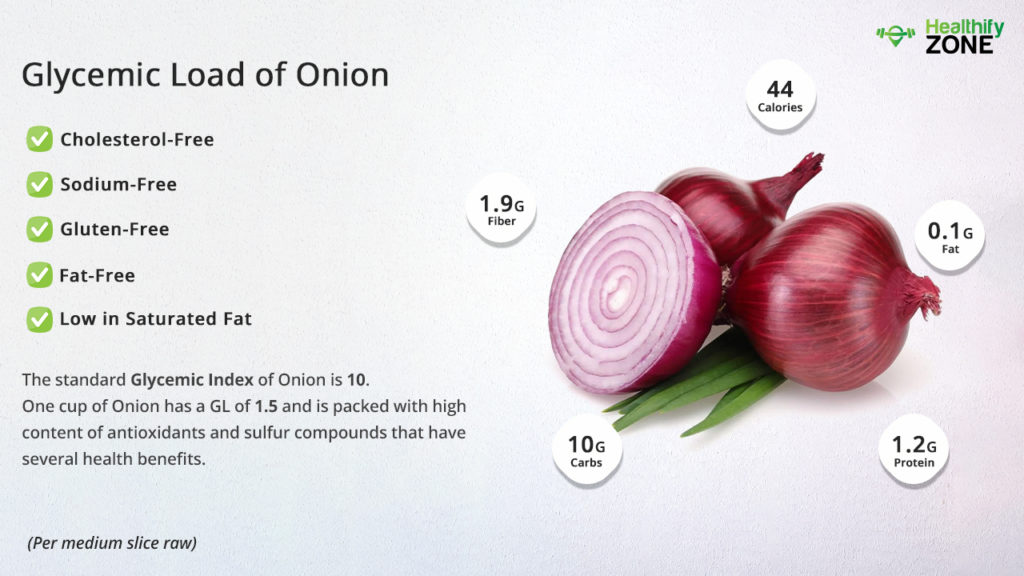The level of carbohydrate content present in food with the pace at which it increases the blood glucose levels is called the Glycemic Load. A simple way of making better diet choices is following the Glycemic Index, which compares and shows alternative sources of nutrients according to your blood glucose levels. Glucose shows a higher blood glucose response in comparison to fructose.
Onions are common all over the world and have several health benefits, primarily because of the high content of antioxidants and sulfur compounds. It is generally used as a flavoring and is a staple in several cuisines. According to the International GI Tables, it has a GI of 10, which is pretty low. Red and purple onions have anthocyanins, which give them the color and are very powerful antioxidants.

Onion is very versatile, can be used in several ways, and it comprises healthy nutrients like
- Fiber
- Vitamin C
- Vitamin B6
- Folate
- Potassium
- Anthocyanins
- Sulfur
- Quercetin
- Thiosulfinates
How to Calculate Glycemic Load of Onion?
The standard Glycemic index of Onion is 10. The high glycemic index of the foods helps in reducing the risks related to cardiovascular diseases. If we want to talk about diet, the key to prevent diabetes or any chronic illness is to distribute the carbohydrate consumption content throughout the day and manage the sugar levels in the body correctly—however, the glycemic load for one cup of chopped Onion= 1.5 approximately which makes it an extremely favorable food.
The Formula/Procedure For Calculation of Glycemic Index of the Onion :
GL = GI * carbs / 100
where
- GL – glycemic load;
- GI – glycemic index;
- and carbs – the amount of carbohydrates in the portion.

| SL.NO | ONION BY WEIGHT IN (g) | GLYCEMIC LOAD |
| 1. | 100 g of Onion | 0.9 (very low) |
| 2. | 250 g of Onion | 2.25 (very low) |
| 3. | 500 g of Onion | 4.5 (low) |
| 4. | 1 Kg of Onion | 9 (low) |
| 5. | One Whole Onion | 1 (very low) |
| 6. | 1 Cup of Onion (150 g) | 1.5 (very low) |
Is Onion Safe to Consume If You Have Diabetes?
There are studies that show that onions can lower blood sugar levels. Another study has shown that eating about 100 g of raw onions can lead to a significant reduction of blood sugar levels. When you have diabetes, it is essential to monitor your blood glucose levels and control them. Given that onion has a very low GL, you can consume it and add it to your diet, and it would not cause a sudden spike in your blood glucose levels.
Can I Eat Onion During a Fat-Loss Diet?
You can eat Onion during a strict fat-loss diet. However, you must eat everything in moderation and refrain from having more than 250 g of it.

- A 250g serving of onion has a GL of 2.25 which is in the permissible levels.
- Onion as a salad ingredient is premissible in a fat-loss diet.
Can I Eat Onion During a Low-Carbohydrate Diet?
You can consume onion while on a low-carbohydrate diet. However, you must take the quantity you consume into account and refrain from having more than 250 g.
Is Onion High in Sugar?
Most onions are made up of almost 90% water and have about 9% carbohydrates, which includes 4% sugar. That being said, it is clearly very low in sugar. They also have a lot of antioxidants with anti-inflammatory properties that are helpful.